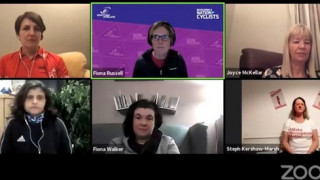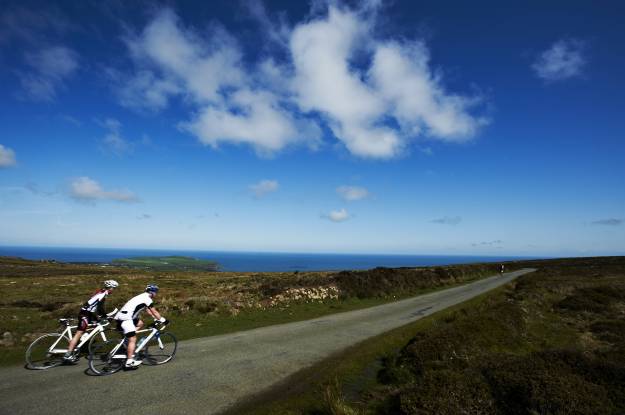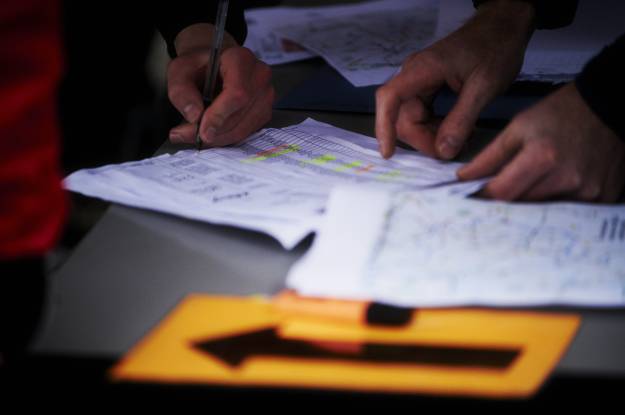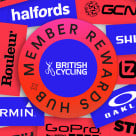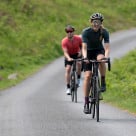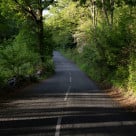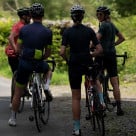#SCTalks is a monthly online panel discussion event, bringing together people with knowledge and/or experience to share on a cycling-related issue. On International Women’s Day we delivered a female-focused #SCTalks: Cycling Through the Menopause, hosted by Fiona Russell, aka Fiona Outdoors.
Joining Fiona on the panel we had five women at different stages of perimenopause/menopause and with different connections to sport and cycling:
- Joyce McKellar, Scottish Cycling Board Member
- Vicky Begg, Triathlete and Triathlete Coach
- Stephanie Kershaw-Marsh, from Menopause Support
- Fiona Walker, cyclist and coach
- Kris Kumari, cyclist and nutritionist
Watch back the recording of the session here, to hear the panel speak about:
- What the menopause is and what the symptoms are
- The panellists’ individual experiences
- Hormone Replacement Therapy
- Natural remedies and nutrition
- Training implications
- The benefits of sport and physical activity
Our host, Fiona Russell, has written a number of articles on the menopause. Here are other resources she recommends:
- www.womens-health-concern.org
- www.mymenopausalvagina.co.uk
She also highlights the #MakeMenopauseMatter campaign from Diane Danzebrink which aims to improve GP education, workplace support and school education. You can sign the petition here.
Stephanie Kershaw-Marsh recommends the Facebook page Menopause Support, Facebook group The Menopause Support Network and Instagram account themenopausesupport.
Here is a link to Menopause and diet: Food Fact Sheet from BDA, the Association of UK Dieticians.
Anyone concerned that any medicines or supplements they are taking for peri/menopause symptoms might be banned in sport should visit: https://www.ukad.org.uk/athletes/whats-banned-sport-prohibited-list
There were lots of questions on the night, so many that we did not get through them all in the webinar. Below are further comments from some members of the panel in response to some of the questions we received. Please note that the information in this article and in the #SCTalks recording is not intended to be a substitute for medical advice, diagnosis or treatment. If you have any health concerns related to the menopause or any other condition, please seek the advice of your GP or other health professional.
Answers below supplied by Stephanie Kershaw-Marsh (SKM), Fiona Walker (FW), Kris Kumari (KK) and Fiona Russell (FR).
How do I know what are menopausal symptoms and what is stress due to a massive workload?
SKM: There is a symptom checklist available at www.menopausesupport.co.uk in the resources section which will be helpful.
FW: That's a tricky one. Can get blood test to check hormone levels but these can fluctuate a lot in perimenopause so normal result does not exclude perimenopause. Might be worth a trial of HRT to see if helps symptoms.
Why do women going through menopause gain weight and is it inevitable?
SKM: Weight gain - as levels fall the positive effect of oestrogen on muscle mass is lost. This leads to reduction in muscle mass, which leads to a reduction in basal metabolic rate, which we don't recognise, and therefore weight gain if we don't adjust our intake/output. Maintaining muscle mass is helpful for weight management.
FW: Changing hormone levels can affect weight but definitely not inevitable. I found this really good article : https://www.menopausedoctor.co.uk/menopause/help-im-heading-menopause-i-cant-control-weight# I haven't looked at everything on Dr Newson's menopause website but a quick skim suggests that it could be a really useful resource. I went to one of her talks when I was a GP trainee and have read some of her stuff when I was a GP and found it helpful.
How do you find a menopause specialist? Never heard of them before tonight
SKM: Menopause specialists are available within the NHS and privately. GP referral is required for NHS, self-referral is usually accepted for private clinics. Find a specialist at www.thebms.org.uk/find-a-menopause-specialist/
FR: The Sandyford: https://www.sandyford.scot/sexual-health-services/menopause/ (NHS Greater Glasgow and Clyde)
I have recently got recurrent saddle sores despite bike fit and riding both MTB and road bike-I had never considered that this might be linked to perimenopause so thank you for raising this- do you have any further advice please?
SKM: The book 'Me and My Menopausal Vagina' by Jane Lewis is very helpful. There is a closed Facebook group - Vaginal Atrophy - full of helpful tips, support and advice.
FW: HRT made such a difference for me. I started HRT in October and have only had one saddle sore since then and it disappeared in a matter of days. Before starting HRT I was having recurrent saddle sores. Good quality padded women's cycling shorts are a must. Chamois cream helps prevent them but I personally use sudocrem as it is much cheaper and has the same effect. If I get a sore I use either Sudocrem or teatree cream.
Kris' regime is inspirational and her list of tips really helpful. What form of protein does she take in the evening and what was the full name of the cherry juice she mentioned?
KK: I have Protein shake after a workout for recovery in the evening - Casein as it is slow releasing during sleep (overnight recovery) or Greek yogurt, or arla protein based yogurt. Ensure it is tart/sour Cherry juice extract concentrate - Montmorency cherries are tart. For example all natural cherry bay orchards or science in sport.
I get woken by night hunger. What would you suggest for late evening protein snack!?
KK: Check that you are consuming adequate protein foods throughout the day and not missing protein based meals. It’s all down to preference examples - protein based yogurt with banana, beans on wholemeal toast, porridge with milk, cottage cheese on wholemeal crackers, skinless turkey or chicken breast mini wholemeal sandwiches.
I find I'm more sensitive to carbs. How much protein do you recommend, and what is your view on animal vs plant?
KK: Depending on the goal but as a guideline pre sleep protein 40g. For master athletes a broad recommendation is 0.4g/kg/body weight evenly distributed over 4-5 daily meals/snacks.
Regarding animal vs plant, it is about preference/choice and personal views. Both have their benefits but be mindful there are also some challenges in both sources. When talking specifically about the quality of the protein we talk about the amino acids (AA) profile. Animal protein provides the highest source; they are complete. Plant based lack one or more of the amino acids; so are incomplete. You can compensate by increasing the quantity eaten and combining more than one plant base source; for example, beans and rice to get a ‘complete’ amino acid profile. It requires a little planning to ensure the protein needs are met with plant-based proteins.
Given that the adrenals help with oestrogen production after the ovaries cease, is there ways that we can measure how our exercise regime might be stress our adrenals?
FW: Not sure about this, blood cortisol levels can be measured but they fluctuate throughout the day so not sure if you could realistically use this to measure effects of exercise.
Evening primrose oil has really helped with boob ache (probably resulting from HRT)
FW: Breast discomfort is a common side effect of progestogens so HRT can cause it. Evening Primrose Oil is often very helpful for hormonal breast pain.
I’ve noticed an ammonia type smell after moderate and high intensity exercise. Looking online this seems to caused by my body burning muscle as fuel instead of fat or glycogen. What can I do to prevent this as I don’t want to lose muscle? I’m pescatarian and have a healthy diet. I have many symptoms you’ve mentioned . Any advice for me?
FW: I would suggest increasing protein intake and some resistance exercise

